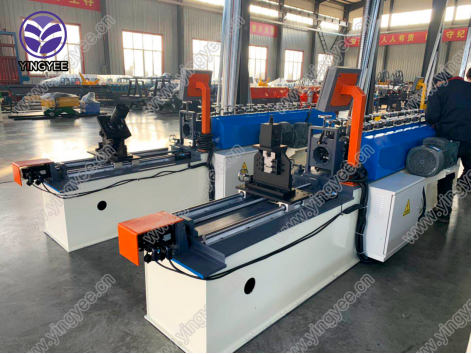
Advancements in Wire Mesh Welding Technology for Chicken Cage Production
In the poultry farming industry, efficiency and productivity are crucial for meeting the ever-growing demand for chicken meat and eggs. One innovation that has revolutionized this sector is the mesh wire welding machine, specifically designed for creating high-quality chicken cage wire mesh panels. These machines enhance the manufacturing process, ensuring stronger, more durable cages that contribute to the welfare of the birds and the profitability of poultry farms.
Understanding Wire Mesh Welding Machines
Wire mesh welding machines operate by utilizing a combination of electric resistance and precise control to join individual wires together. The welding process creates a robust mesh that functions as a vital component for chicken cages, providing the necessary strength while allowing for proper ventilation and accessibility for feed and water. The technology behind these machines has evolved significantly, incorporating automation and advanced control systems to maximize production speed and accuracy.
Benefits of Using Mesh Wire Welding Machines
1. Increased Efficiency Traditional methods of constructing chicken cages often required extensive manual labor and time. With automated welding machines, production rates can increase dramatically, allowing poultry farmers to meet demand without compromising quality.
2. Enhanced Durability Welded mesh panels are known for their strength. The welding process eliminates weak points that can often be found in woven meshes, resulting in cages that can withstand the rigors of daily use and environmental factors.
3. Customization Modern welding machines provide flexibility in design, allowing manufacturers to produce various sizes and configurations of mesh panels. This adaptability ensures that chicken cages can be tailored to different breeds and farming systems, further enhancing the efficiency of poultry operations.

4. Cost-Effectiveness While the initial investment in a mesh wire welding machine may be significant, the long-term savings in labor, materials, and energy consumption can be substantial. Automated systems reduce the need for manual oversight and workers, and the durability of the welded products means fewer replacements and repairs over time.
5. Improved Animal Welfare Well-designed chicken cages that utilize superior mesh panels contribute to the overall welfare of the birds. The strength of the welded mesh not only ensures the safety of the chickens but also facilitates proper airflow, minimizing health issues related to overcrowding and poor ventilation.
Future Trends in Mesh Wire Welding Technology
As technology continues to advance, the mesh wire welding machines are expected to integrate further with Industry 4.0 concepts. This includes the incorporation of Internet of Things (IoT) capabilities, allowing for real-time monitoring and data collection throughout the manufacturing process. Such integration can lead to predictive maintenance, minimizing downtime and extending the lifespan of machinery.
Moreover, innovations in materials science may lead to the development of even more resilient wire materials that can withstand harsher environments and support the growing interest in free-range and organic poultry farming practices. This would not only benefit poultry producers but also align with an increasing consumer demand for ethically produced animal products.
Conclusion
The mesh wire welding machine represents a significant advancement in the poultry industry, transforming the way chicken cages are produced. By offering increased efficiency, durability, and customization, these machines aid farmers in addressing the challenges of modern poultry farming. As technology continues to evolve, the potential for further improvements in mesh welding processes promises a bright future for poultry production, enhancing both productivity and animal welfare. Investing in such advanced machinery is not just a step toward modernization; it is a commitment to building a sustainable future for the poultry industry.